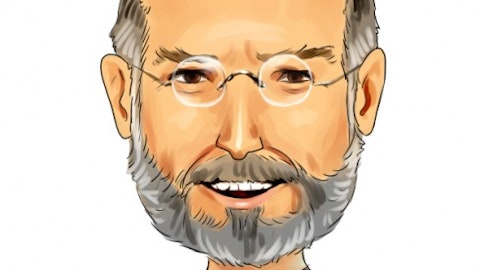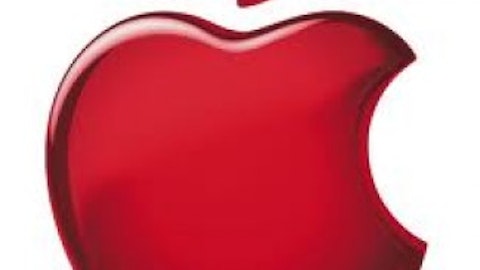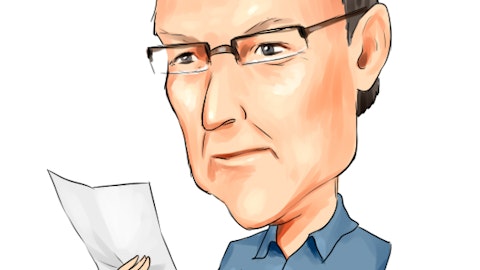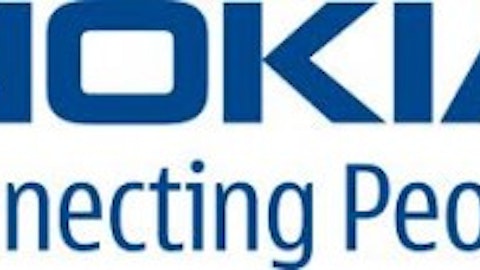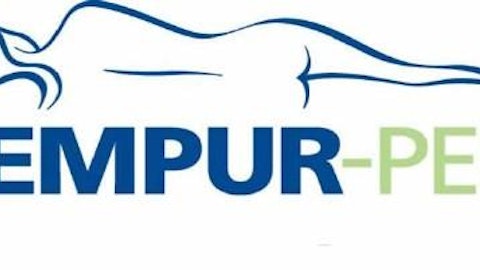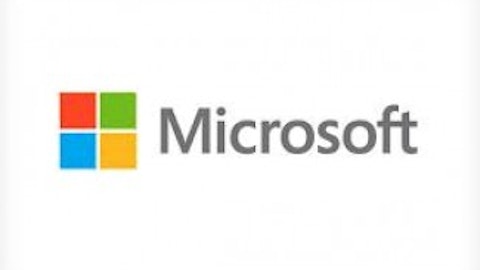Jabil Circuit, Inc. (NYSE:JBL) is an electronics supplier to key companies, such as Apple Inc (NASDAQ:AAPL) and Research In Motion Limited (NASDAQ:RIMM). However, the company is down almost 30% since the start of the second quarter; worse yet, it’s lost 20% over the past two weeks.
At the end of the second quarter there were three top funds upping their stakes in Jabil, including Ken Griffin with Citadel Investment Group who upped his stake to over 3.6 million shares, an 862% increase from his 1Q position. Both Cliff Asness of AQR Capital Management and Steven Cohen with SAC Capital owned over 1 million shares each at the end of 2Q, an increase from 1Q of 33% and 1136%, respectively.
Assuming that all the funds still owned the same number of shares two weeks ago that they owned at the end of 2Q, the losses over the past couple weeks shape up something like this—Ken Griffin with a loss of $14.4 million, Cliff Asness a loss of $6.2 million and Steven Cohen a loss of $5.5 million. The logical next question is whether or not there is a rebound in store for Jabil?
Jabil’s weak 2Q results was the primarily drive for the stock’s decline over the past couple weeks. Jabil’s 2Q net income was down 28% from the same period last year—see the full earnings analysis. The company also faces some risk due to reliance on large customer accounts, with almost 50% of Jabil’s revenues from its five largest customers in 2011. One of Jabil’s prized clients is Apple. Jabil supplies aluminum casings for the iPhone 5. According to analysts, the company’s profit decline indicated signs of weakening margins in manufacturing aluminum casings for the latest iPhone. The company generated 10% of its sales from Apple last quarter. Aside from Apple, Jabil Circuits also generated 10% of its sales from CISCO and RIMM.
In a research note to investors, Goldman Sachs analyst Graig Hettenbach said he was disappointed on the fact that he missed the magnitude of the negative impact the ramp of the iPhone 5 would have on Jabil’s margins. While Sean Hannan, analyst at Needham & Co, noted Jabil has efficiency issues with the continued sharp ramp-up of the iPhone 5 production.
A couple key competitors include Plexus Corp. (NASDAQ:PLXS) and Flextronics International Ltd. (NASDAQ:FLEX). Both Plexus and Flextronics are also seeing weakness in their performance. Plexus gave guidance that included weak sales growth due to a struggling economic backdrop. Full year 2013 EPS guidance was cut from $2.77 to $2.37. Plexus also has a customer related risk, with a large concentration of its sales in its top customer, Juniper Networks, which represents roughly 17% of sales.
Flextronics is feeling the pain from slackening demand from some of its top customers as well. The company’s largest mobile customer is RIMM, which is dragging down Flextronics’ High Velocity Solutions segment. Revenue is expected to decline by 17% for full year 2013.
Jabil managed to grow revenue in its last fiscal year 3.8%, and is expected to grow 2013 by 5.5%. However, for a growth-oriented company, this growth rate is modest. The majority of the company’s growth is expected to be driven by diversified manufacturing unit, which has strong ties to the flailing RIMM and its mobile phone BlackBerry, as well as ties to the over zealous Apple—see why insiders are dumping the stock. Jabil’s connections to RIMM are undoubtedly dragging the company down, with RIMM’s subscriber growth falling and volume expected to go from 27 million units this year to 19 million units next year.
Jabil’s P/E ratio is in line with its peers, but Jabil also pays an almost 2% dividend yield, where its peers pay no dividend. We believe that perhaps the top fund names in the stock were playing Jabil as a derivative of the recent success of the iPhone 5. However, as noted, even with stellar performance by the iPhone 5 the impact on Jabil is margin compression. Even as Apple sells 8-9 million iPhone 5s in 4Q and 25 million iPhones total for that quarter, Jabil will see topline success, but its earnings will suffer, putting the company in a catch-22 situation.

